What is Capitalism?
2003
16mm film projection in installation between mirrors
Film:
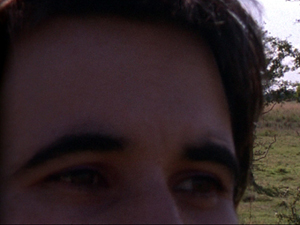 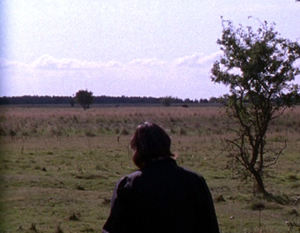
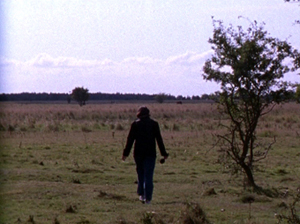 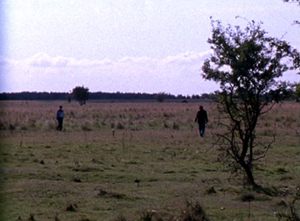
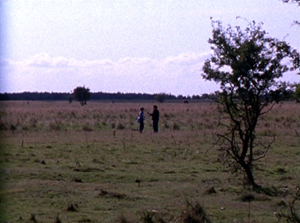 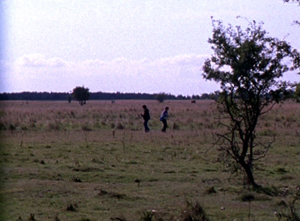
At first everything is black. Then a person uncovers the camera and partly reveals its view. This person asks the cameraman if there is image, the soundman if there is sound. Both voices confirm. The person asks for the microphone and then walks away from the camera.
One by one, different people walk into the image, seemingly appearing out of nowhere (due to the mirrors), as well as into reach of the microphone. Each of these passers-by is asked what ‘capitalism’ means. Although all of the responses are different, describing different relations, all of the passers-by speak in normal everyday language and all of them express the difficulty of putting ‘capitalism’ into language. Both image and sound fail occasionally, cable noises and glimpses of raw film running out obstruct the narration and illusion of space for short moments. Towards the end, a small family passes. They forget to give back the microphone. As they exit the screen we can still hear them, though all we see is the interviewer approaching the camera. Sound and image have parted.
The film is set in a bare, uncultivated landscape: a field stretching out into the horizon, resembling the typical setting for movies of the ‘Western’ genre. In Westerns, the ‘new land’ (the West) is articulated as empty – ready to be inscribed with meaning: a naked landscape into which the desires of the protagonists and spectators can be projected. In the installation, the eternal repetition in the mirrors makes the one image resemble such an enormous open field.
Installation:
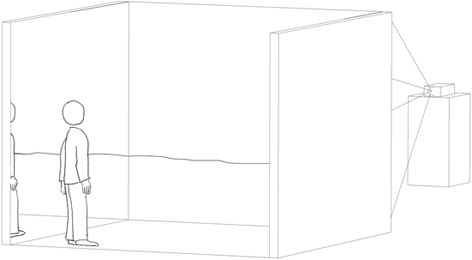
‘What is Capitalism?’ is a rear-projection of a 16mm film onto a screen between two mirrors, which are positioned at a 90-degree angle to the screen. The two mirrors reflect each other and the image between them, as well as viewers standing in front of the screen, so that when standing in front of the screen, the viewer is standing between the mirrors, and from here, seeing herself—along with the projection—eternally repeated to each side.
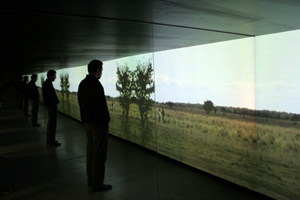 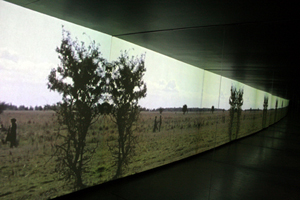
More stills from the film:
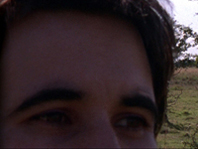 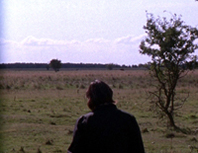 
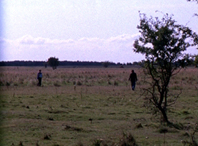 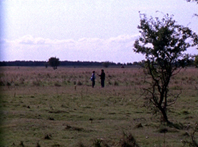 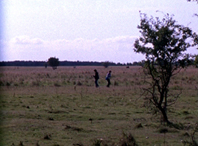
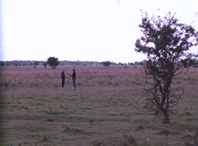 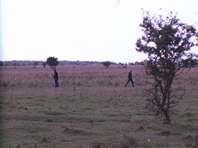 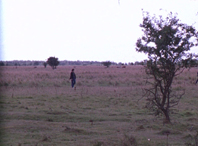
 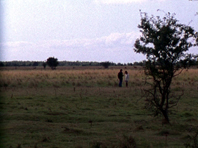 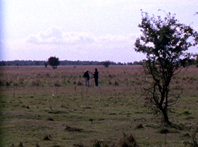
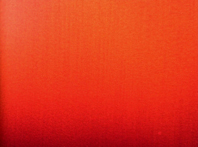 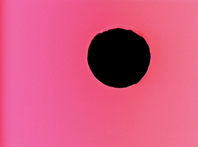 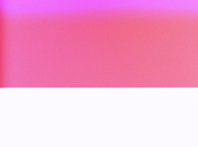
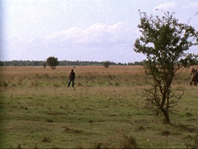 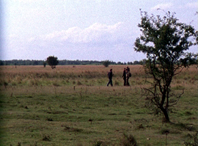 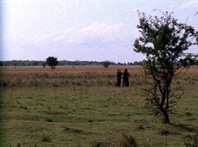
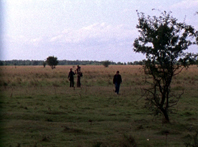 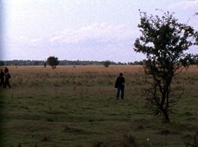 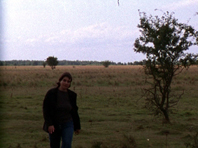
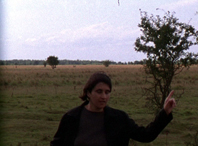
Shown in:
Politics of Research, Zeppelin University at Flughafen Tempelhof, Berlin, 2007.
Capital (It Fails Us Now), Kunstihoone, Tallinn, 2006 (catalogue)
Capital (It Fails Us Now), UKS, Oslo, 2005 (catalogue)
The Most Complicated Machines are made of Words, Museum Moderner Kunst, Wien, 2005 (catalogue)
Cycle Tracks will Abound in Utopia, Australian Centre for Contemporary Art, Melbourne, Australia, 2004 (catalogue)
Western: Terms of Use, Charlottenborg Exhibition Space, Copenhagen, 2003.
|






























